
“Traffickers: Inside The Golden Triangle” is a three-part hour-long documentary series that uncover the hidden epicenter of illegal drug production inside the Golden Triangle. The HBO Asia Original documentary explores deep into the drug production world and reveals the narrative of some of the most notorious drug lords in Thailand, Myanmar and Laos.
The documentary series penetrates into the story on how the three infamous drug kingpins, “The Opium King”, “The Mekong River Pirate”, and “The Playboy Drug Lord” rise to the top through drugs exploitation, violence and war. “Traffickers: Inside The Golden Triangle” is a documentary drama series that brings to life the crimes and busts that lead to the demise of these disreputable drug lords.
Available in English, Thai, Burmese and Lao, the “Traffickers: Inside The Golden Triangle” is directed by Robbie Bridgeman, Steve Chao and John Lam as well as Dean Johnson as the executive producer. Check out the interview with Steve Chao and Dean Johnson where the director and producer discuss the pre-production challenges, teaming up with the law enforcement, the untold stories of the Golden Triangle’s illicit drug production and more.

1. What inspired you to produce the documentary?
Dean: Actually as a production company, we are always looking for fresh stories and new stories. What was incredible about this is when we started to look at true crimes as a genre, we decided to explore new regions, what kind of true crimes series could we work on and we looked into different organized crimes ideas. And then we came back to the Golden Triangle and we assumed that it must have been done for. Everybody must have been doing documentaries about drug traffickers in the Golden Triangle. When we realized that there hadn’t been a production made, we were just blown away. It’s the biggest untold secret. I think everybody has now watched online those series all over from Latin America, we have all seen lots of them, dramatized series, series about different drug traffickers are Latin America. Latin America kind of owns that space in the world TV market, about drug barons. But we suddenly realized that our Golden Triangle in our region has far bigger stories and it is just never been told. And it’s kind of been like our dark secret in the region, nobody really wants to go there, it’s a dangerous topic to tackle. You know, in countries in our region, we have to be careful about taking on some of these subjects especially when you’re naming people. But it was such an incredible untold story that once we dived in, we tried to understand how we could tell the story in the best way and we decided a docudrama would be the best way to be able to bring these people’s tales and these stories to life. And that is why we decided on HBO with this great partner because they can help us with this ambition to make it as big and as special as we could. So, yeah we found this incredible untold story and found the perfect partner with HBO.
Steve: It really truly is the untold story of Asia. There has been so much exposure on El Chapo, on Escobar, and what we have seen increasingly is the Golden Triangle growing in its presence in terms of drug trafficking. From 2015 onward till now, we see that when it comes to methamphetamines, the Golden Triangle has taken the top spot in the world, producing methamphetamines for the rest of the world. And to have the opportunity in “Traffickers”, in this series, to go back to the origins. To the moments where the Golden Triangle rose in prominence and brought it to the present day, where it is today, it is an incredible exploration. It is an incredible untold story. Like Dean was saying, it is a dangerous story to tell, for journalists, for us naming names. We feel like it really does raise awareness for many people around the world as to what is happening in this region, in the Golden Triangle.
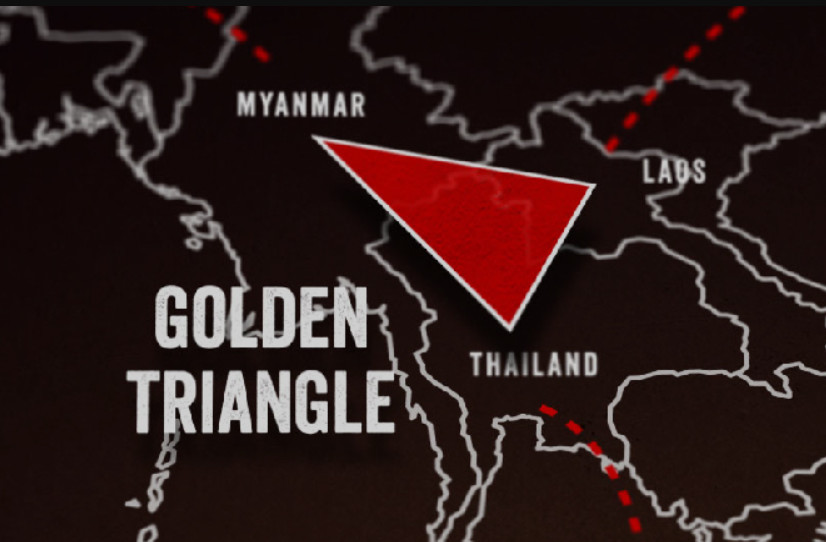
2. What interested you in making this documentary?
Dean: I have heard stories 20, 30 years ago of people like Khun Sa and in the 1960s and 70s so I knew about the history. But I didn’t really realize until we started the research how big the drug production is in the Golden Triangle today. There will be drugs from the Golden Triangle arriving in each one of your countries, in the Philippines, Indonesia, Malaysia, everywhere in the region. And once we started to dig, we realized that it wasn’t a story about history, it was a story about today. Synthetic drugs, yaba, in Thailand, in the Philippines there is ice or I forget the local name for it but amphetamines in this region, there’s so much, there are record levels every year. Every year, more synthetic amphetamine based drugs are coming into Southeast Asia. That is when we realize that we had to tell the story, it wasn’t a simple story, it was a story that started in 1960, and then we took it until the present day. So, I think what excited us the most was the reason we wanted to tell the story because it was a story about what is happening today. But we had this amazing ability through the series to start with the past and come all the way to the future.
Steve: We all know that in the last several years, law enforcements have made record seizures. Every week in some countries in Southeast Asia and beyond, there’s record seizures of methamphetamines. And you really go down to the root of how this all began, is really what this series is about. And then to bring it to the present day. We just found an incredible exploration told through the drug lords. We felt that that is something that hasn’t really been done and hasn’t really been tackled. Who were these drug lords? How did they take advantage of the lawless situation in the Golden Triangle? How did they managed then to capitalize on that? And, you know, what were their lives like? Who were they? Some were bolder, you know, Khun Sa we knew was – for a period – very open to the media, hence you know we have these incredible footage of him that we pulled from archives from as far as the US. It’s a different story from that one. But also then you know, our playboy celebrity, Mr. X, Xaysana Keopimpha, he was a person who just rose out of nowhere. How did he become so prominent? It is an incredible story also not only just the drug industry, but also the rise of Asia, in so many ways, in prominence. These people all were able to read this incredible shift in the economy that we’ve seen in the last several decades. And it has grown in prominence in Asia as an economic hub. They rolled on all those networks, to smuggle, to move and to traffics the drugs on the region and globally.
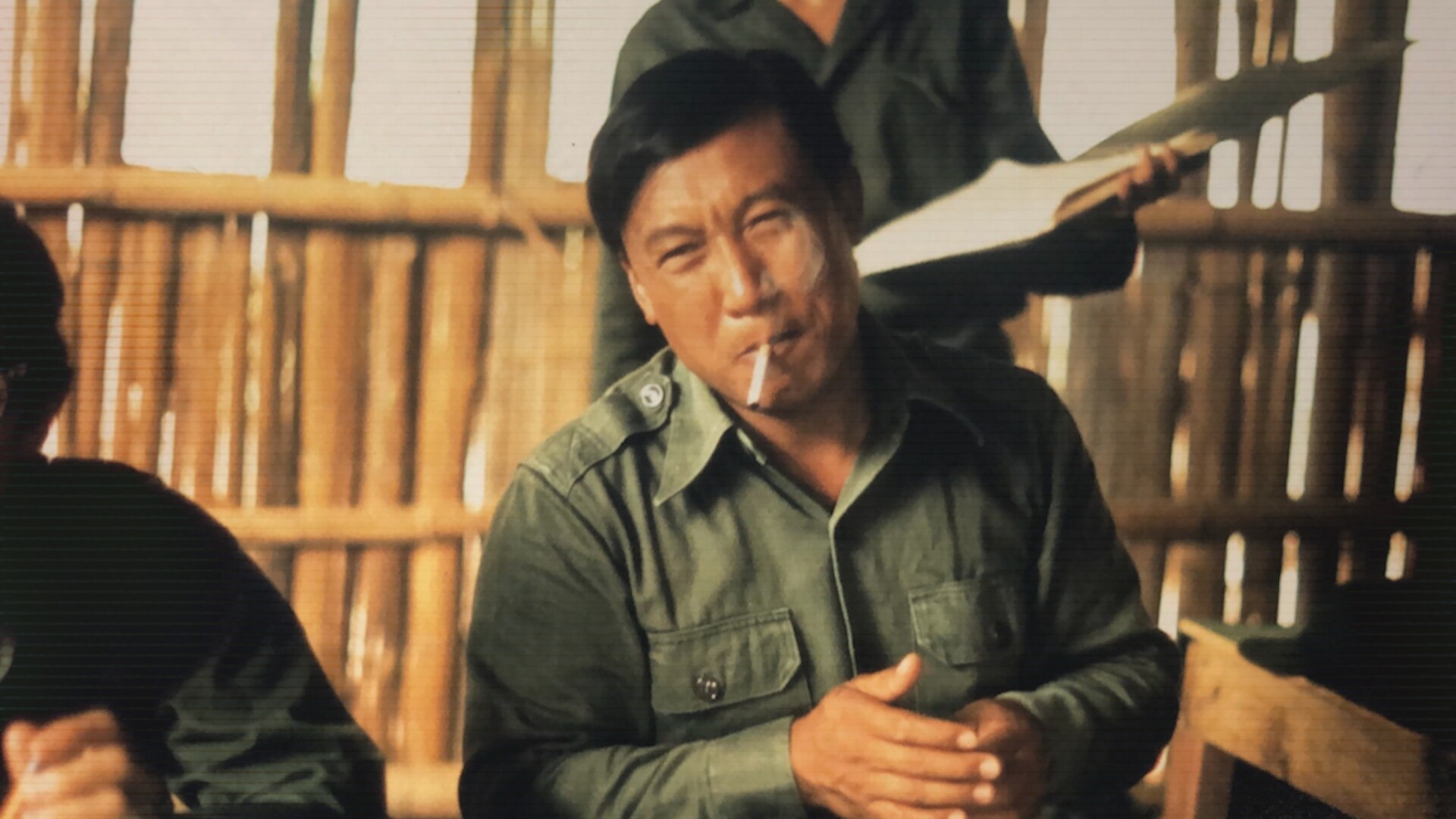
3. How do you find each subject to interview? How did you get to know them?
Steve: So, it really went back to old gumshoe journalism. Because what we didn’t want was so much second hand or third hand sources. We really want to get to the people who knew the drug lords, the people who work with the drug lords, and we also want to get deep into law enforcement, people who actually were part and parcel of taking down some of these drug lords. So, when Dean approached me to join the series, he said we need to spend a hefty amount of time in pre-production, in reaching out. And we just blaze phones, for hours on end. We had meetings in Yangon, we had meetings up in the Golden Triangle, in Myanmar, in Northern Thailand, with people who were still involved in the drug business. We just kept asking them again and again who we should speak with? Who was the wife of Naw Kham? And we found out that not only does he have a wife, he has two wives, maybe a number of mistresses, and then we just basically started going from there. In terms of law enforcement, we even spoke to retired DEA officials who are still working with American government. One of them was in a bunker basement of an American embassy in South America. What was he up to? We don’t know. He didn’t agree to an interview but he did put us in touch with others who became key voices in talking about the move of heroine into New York in the 1960s, 70s and 80s and the take down of Khun Sa. We spoke to the Chinese, you know about their efforts in taking down Naw Kham, “The River Pirate” and we spoke a lot to the Thai authorities in terms of their involvement in all of these and also their involvement in taking down Mr. X, not only in Laos but also in Thailand. So, it’s a lot of working through various contacts.
4. Part of this documentary was shot in Malaysia, why was that important and what role does Malaysia play in the illicit drug trading?
Steve: Malaysia plays prominently for us, more so in episode three. And it really was looking at Xaysana’s key networks. He was always looking for avenues to traffic the drugs through and Malaysia, from what all the authorities were telling us, from Malaysian authorities to Thai authorities, he has key pipes of trafficking down over the border. We ended up going to the north to try and get in touch with some of the people that he worked with and we had a beat on a few of them. One person that just been released from his time in jail. Unfortunately, by the time we got up there, we had been working with Malaysian authorities, and they were giving us information and they believed that this person was in this village. By the time we got up there, he had done a runner and disappeared. So, a lot of filming in Malaysia was about chasing ghosts, we confirmed to some sources that we can talk about, that this network truly did exist, and that he had contacts deep into Malaysia, in KL, with illegal criminal underworld operators and elsewhere. In terms of what we ended up using in the film, there was less Malaysia there in episode three. But a lot of it was confirming Xaysana Keopimpha’s standing, number one, as one of the key drug lords, you know moving drugs through and then understanding his route. And a lot of the Malaysian contacts also gave us contacts in the Golden Triangle, whom we did end up talking to.
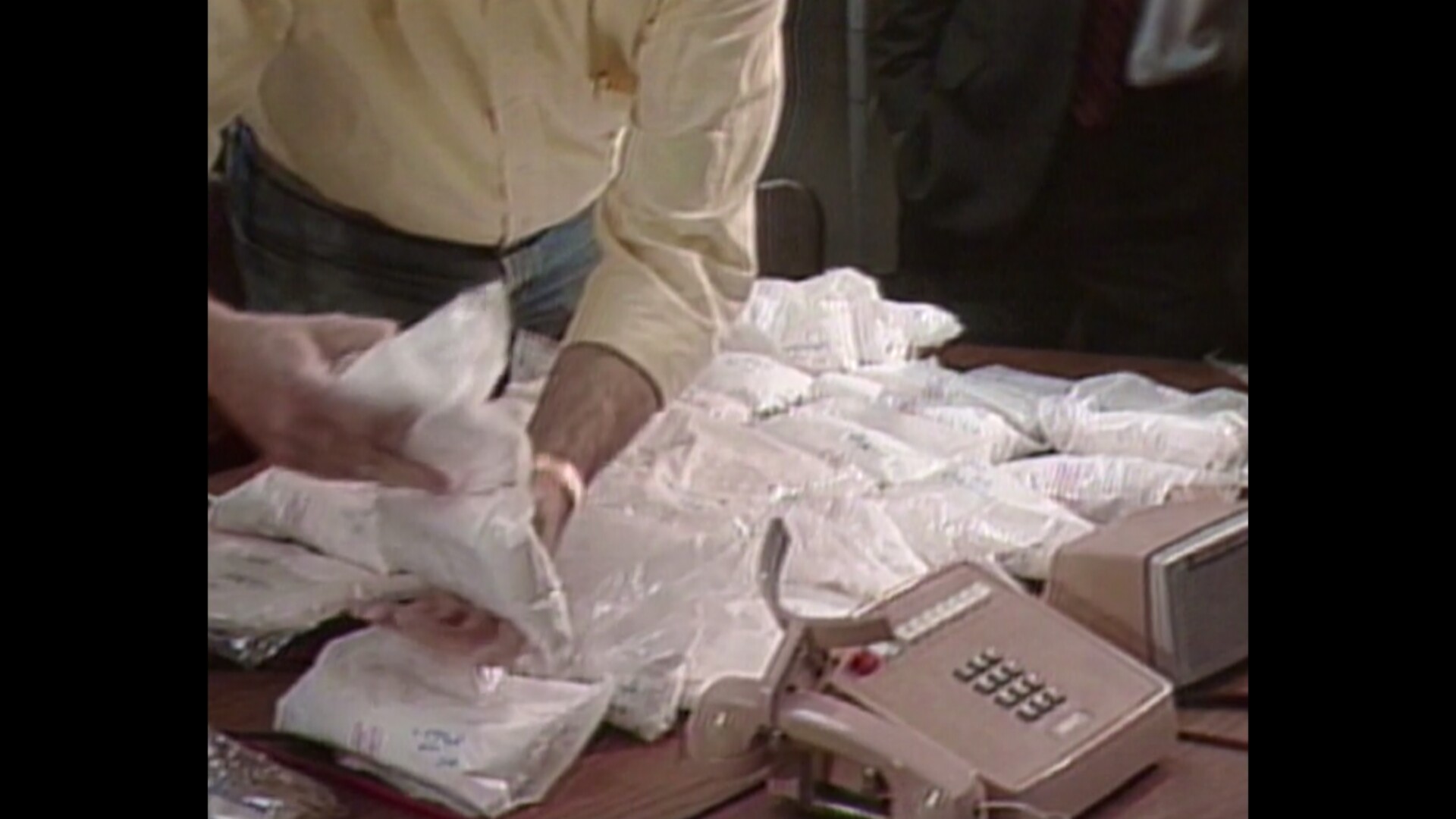
Dean: What’s interesting is the trafficking groups and the traffickers (is how) they are almost like Amazon or Lazada; the way that they deliver traffic, illicit drugs is really really unique. For example, they will send a few hundred kilograms out of the Golden Triangle. Maybe 200 kilograms to go through Laos, come down through Laos, come across the Mekong River into Thailand, go down through the Malaysian border into different pick-up trucks. Maybe go to Penang, maybe on a boat, go to Indonesia, Philippines, Hong Kong. So, it’s like the tentacles of an octopus. They literally send these drugs through so many different routes. So, very often, a country could be a transit point. But, maybe then half of those drugs will be offloaded in, say, the Philippines, maybe the rest would move on. It’s so difficult for law enforcement in the region to be able to stop all these shipments because their routes change so regularly, their methods change so regularly. The one remaining solid principle is that they have this unpoliced area in the Golden Triangle where they can manufacture as much as they want. At a really low cost. And they have a whole of Asia Pacific as a market for their drugs. So, that’s why the scale like Steve said is so incredible because the rising of all of their economies in the region, the purchasing power, and their consumer base grew so much in the last 20 years. That is the most pro drug business in the world. Forget Latin America. The profits that are made in the Golden Triangle are the highest profit margins anywhere in the world in drugs. So, it is a really difficult thing for law enforcement even though the Philippines, Indonesia, Thai police, Malaysian police, they all gather regularly, Singapore too to have conferences, to work out targets and who they are going to try and disrupt and which networks. It’s a difficult thing to tackle because we have so many borders, it’s a really tough place to be.
5. In regards to Khun Sa, do you get deeper into why he inspired such a following among the Shan people? Has the fascination continued to the newer generation?
Steve: It is a good question and it is one of the motivations of why we really chose Khun Sa as the main figure for episode one. It really was a chance for us to get into his story and when we were in Ho Mong, one of his former bases, we can really see that his legacy translates down to generations today. And why is that? I think the Shan people, his people, have always looked towards their leader to really guide them through situations that continue till this day. This desperation for them to have a degree of independence and an identity as the Shan people. To be recognized as a unique cultural group. This is where the dilemma falls with Khun Sa. You can see that in episode one, he was truly there as a freedom fighter for the Shan or was he there to ingratiate himself? And I think the answer falls of course somewhere in the middle. In talking to his people, if you will, they all recognize that he was there in part for himself. Which is quite interesting. But they also told us that he did so much for the Shan people during that time. So this was not just the innocence, that they were given a little bit of money and therefore, they felt indebted to him. There truly was a sense and a belief that Khun Sa did a lot for the Shan and he really protected his people. Yes, he was a very brutal, vicious drug lord. Maybe, along the lines of ‘El Chapo’, Escobar, maybe not as boldly, you know and he did kill people who did go against him. But, he was also known to be really gracious. That kindness that he showed to a lot of the Shan, you know those stories still passed on from like grandparents to parents to the children till today.
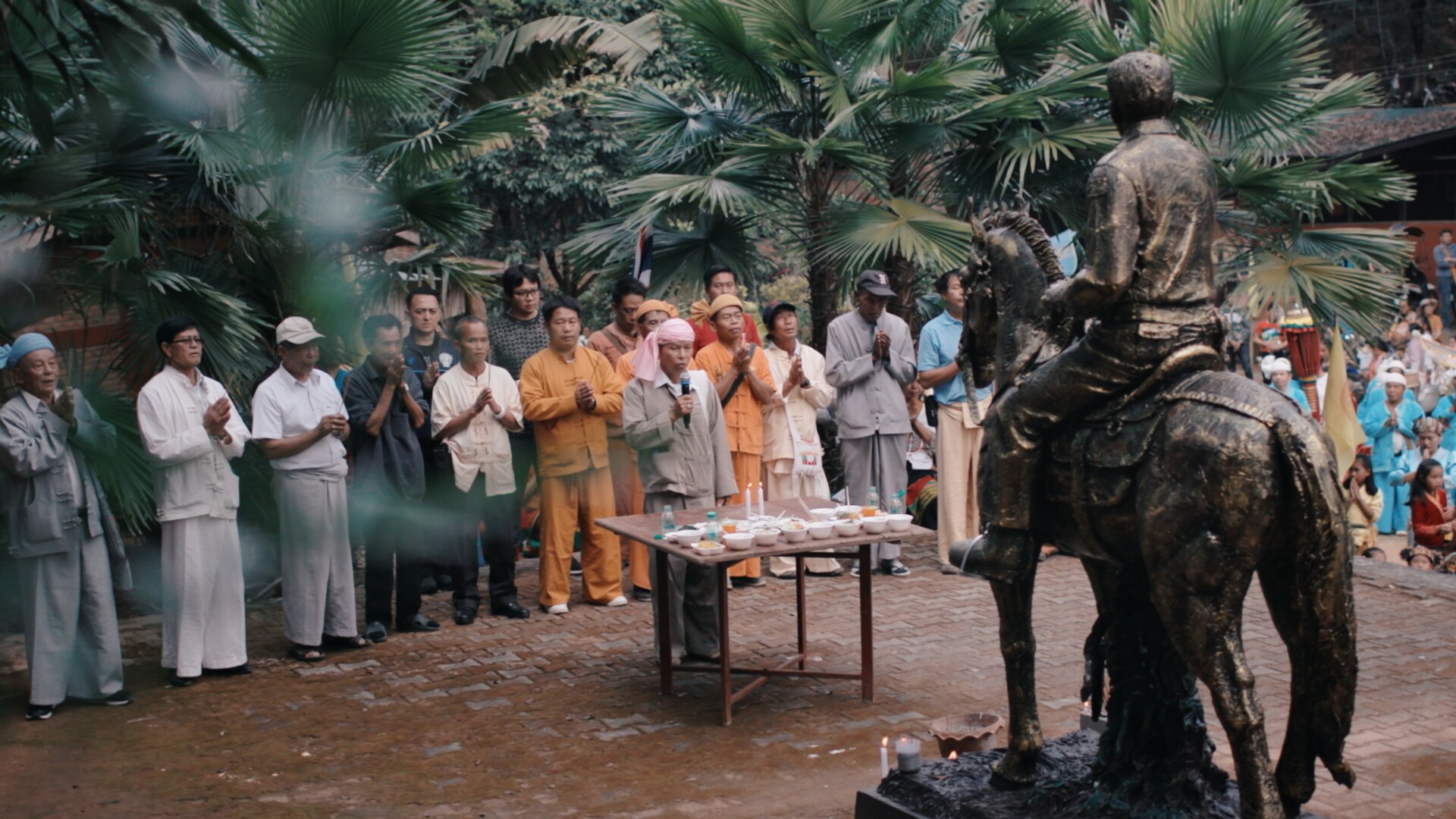
6. Was it difficult to navigate through the exclusive interviews, especially getting the answer from the members of the inner circle? Were they cooperative in providing the answer that you need?
Dean: Yeah, it was really difficult. We spent a long time, I mean, we actually didn’t stop. So, the production was about a two-year period and we never stopped working to find out the real story. And that’s been our biggest challenge – to understand what really happened. Because somebody would give you one piece of information and then you have to keep checking and then you get another piece and another name and then another person. So, it was such a challenge to get information from law enforcement, also, because they need to trust you, that you are going to use whatever they tell you. A lot of things they can’t tell you. So then we had to go to retired officers to find information about the gang members, and their friends and family. That’s when Steve kind of almost goes on the ground. Steve actually was in the Golden Triangle, in places, masquerading himself as an illegal gambler. So, Steve would actually go on the ground to find out a lot of the information to win their trust. He would be drinking, you know, potentially, into the early hour of the morning to get some information to forward trust to corroborate the story. Because we have to make it 100 percent factually correct. We can’t just give some ideas that somebody told us something. We have to corroborate everything, double check, triple check, so anything we find out from the criminal side, we also check with the police. Once it all matches up, then all the jigsaw puzzles come together.
Steve: It took a lot of hours of spending time in the Golden Triangle, days in the Golden Triangle. There were times we had to slip through checkpoints to meet up with people who were still involved in the drug trade. We spent a lot of time confirming the stories and then trying to get a number of people to say yes to interviews. I think for every person that said yes, whether it would be from the criminal underworld, or law enforcement, there would be say maybe ten, who would say no. Yet, a lot of them also still provided key information. It was dangerous at times. There were moments one time when we were out with the monk that featured in episode two… We were out on a boat around Sempu island, which was the island that Naw Kham, the river pirate operated from. And we were filming with him, we secretly got our way there. Then out of the bushes, out of the jungle, emerged gunman with rifles. And we were between Sempu island and the mainland, and we were just right there in the middle and there was a tense moment where we were just staring at each other. They were trying to understand what in the world was a film crew doing out on the water. We knew this was a drug Malaysia control territory. And then fortunate enough, they saw the monk, judged us, and they just disappeared back into the jungle. Later on when we got back, some of the locals told us that there are super lapse, methamphetamine super lapse operating in that area still and that is truly dangerous. So, there were a number of interesting encounters like that as we went along. But, yeah, we were very fortunate that in the end a number of people agreed to interview with us. Whether it be one of Khun Sa’s men, or whether it was one of Naw Kham’s men, or Xaysana Keopimpha, one of his drug dealers who actually agreed to share his experience and his encounters with Mr. X.
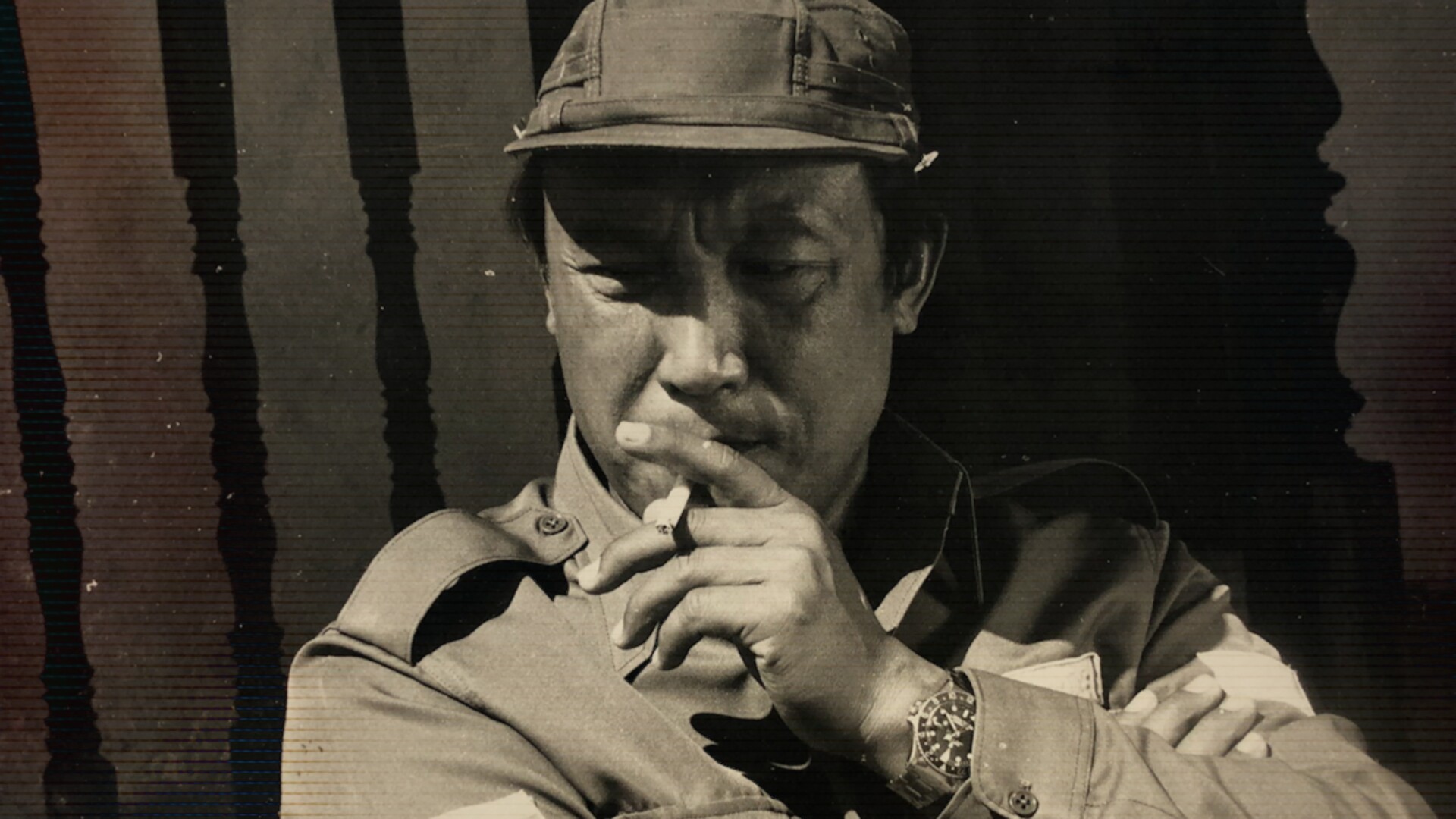
Dean: Yeah, maybe just to add, what we found during the series is that a lot of what motivates, this might seem obvious, but what motivates these people to choose a life of drug trafficking is just greed. So, we kept coming up against the same principle, greed, and it was greed and the desire to want fast money quickly that made these people decide not to care about humans, or their impact on human life. So, once we understand that every single motivation is greed, also dealing with these people you can get inside their mind and understand that actually, it’s greed, it’s money, it’s profits that they want. And so you start to understand the psychology of how these traffickers operate and how they lead their lives. Ultimately, what we realize, it doesn’t matter because eventually they will be taken down and you cannot be a drug trafficker forever. Khun Sa was one of the rare occasions where he died naturally, due to natural causes, but everybody else that we have come across, ended up in a bad way. They will end up either dead or in prison. There is no happy ending to being a drug trafficker, but I think a lot of people like Xaysana and these people come into the business now, they just see greed, and money, and get rich quick. It just never works that way. So, ultimately, our series tells a story, well you get caught in the end, and you will pay the consequences for your actions.
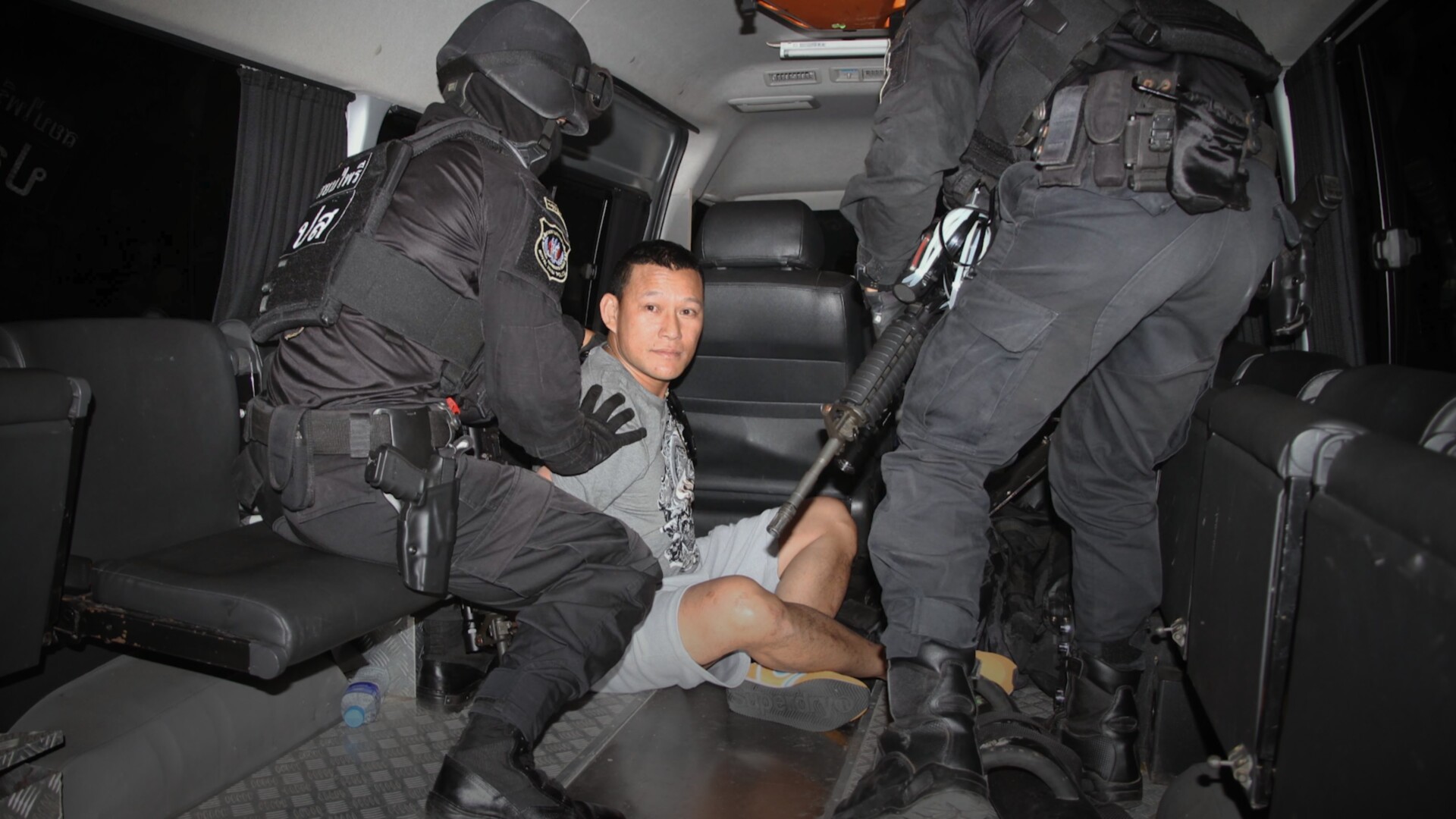
7. What was the most shocking thing that you learned while filming “Traffickers”?
Dean: The shocking thing for me, personally, was the amount of amphetamines that are flowing into Southeast Asia. I really didn’t understand just how much drugs are out there in the market. Also, the fact that amphetamine is a classless drug. So, it is at all levels of society. We found that it could be anybody, from a teacher, like we were really surprised by how these traffickers target, their market is anybody. And they make this product that is at such a price, that gives a certain feeling, they just target everybody. I was pretty shocked by how much amphetamines and how it was in all levels of society.
Steve: I have been a journalist in the region for close to 20 years, been a journalist globally for 25, 26 years, and what was truly remarkable is the scale of the drug production in the Golden Triangle but also the scale of how the volume of drug that are going out and it has been tailored for every class. Yaba, the cheap, crazy, happy pill for Thailand, or ‘syabu’ in the Philippines or ‘Ice’ for markets like Japan. Where it costs pennies to make in the Golden Triangle. They can sell ‘ice’ for 250 thousand dollars wholesale per kilo. So you can imagine the profits and then you can understand their motivations for people willing to take the risk to produce the drugs in the Golden Triangle and then to traffic it out. And, yes, if you get too big, there’s a high chance that you get taken out. But at the same time, as you all saw in the series, that greed, that motivation, that dark side of humanity, will always ensure that there are others willing to take that risk. What happens to them in the end? I think it is pretty evident. But that motivation is also very interesting.

Dean: Yeah, and that is why this biography is such a fascinating viewing because I think that people naturally, audiences love true crime, they love to understand what is behind the mind of, for example, a serial killer or a murderer. Like why, how can a human being do this? I think with drug traffickers, it’s that same, sort of addictiveness we felt with the series and with the personalities. We were constantly thinking, like how did they get into that? How do they become a drug trafficker? What decisions do they make? But what we found was that these people have very strong personalities. These are almost alpha personality people. They are all similar, if you break them down psychologically, psychoanalysts, you would understand they all have similar kind of principles and personality traits. But that’s what makes this a great character for a docudrama, because they are fascinating people. Whether they are good or bad, or whatever parts of their life is good or bad, they are fascinating because they have chosen this very extreme way to live their life. I think that is what the audiences want to look at. “What choices did you make? How did you become this?” Like from the film perspective, that is what makes this a great TV show because the subject matter is drugs in the Golden Triangle and then these characters bring those stories to life. So, the audience learns so much about us, we basically give that really exciting relative history through the eyes of these three characters. These three characters are just really complex and not just them, there are other drug traffickers, there are many many guys out there. It doesn’t end with these three. There will always be people trying to make profit in an illicit way. So, this is just a study, a series on three really fascinating characters who chose very different ways to lead their lives.
8. In terms of the docudrama aspect, how do you guys strike the right balance, between the dramatization and documentary itself?
Dean: As a filmmaker, when you take the choice to fully dramatize, you are in a much more dangerous zone. Because I think if we all watch, I don’t want to talk about other channels, but if you watch HBOs, there are many drug lords series there. If you watch those kinds of shows, as filmmakers, personally, I feel like I become much more engrossed. I feel like those shows glamorize a lot more. And I think the decision for HBO to take a docudrama approach was the right move for people because you are literally doing two things, with the drama, you’re right, I mean drama looks cool. So, even if we’re showing violence, which we do, and we show people getting shot. But what we did to counterbalance that is we come back and we hear a very stoic interviewee talking to camera, saying that that is just wrong. And what they did was wrong. So, that choice for HBO to go this path rather than fully dramatize was really good because that really counterbalanced it.
It’s really difficult, those series we watch once and we come away feeling, “Oh, yeah they were bad guys but man what a great series. I can’t stop watching where they kill each other. Oh man, he gun shot down 10 people, wow, I’m gonna watch the next episode”. I feel like with our series, we also spend time to explain what these drugs are which you’ve never seen in a fully dramatized series. So, from our series, you understand what amphetamine is. What does it do. What does it look like. So we visualized it, we explained it, we explained the impact. So, we have a lot of moving parts that have to work, including mixing in the drama, mixing in the good guys and the bad guys, the context, the history, the drugs themselves, explaining the Golden Triangle. Actually, not a lot of people know and there’s a generation in our region, anybody who is under 30, probably might not even know what a Golden Triangle is. The older generation remember because in the 60s and 70s, there was Khun Sa and everybody might remember the heroine that was coming out but the younger generations don’t even know what a Golden Triangle is.
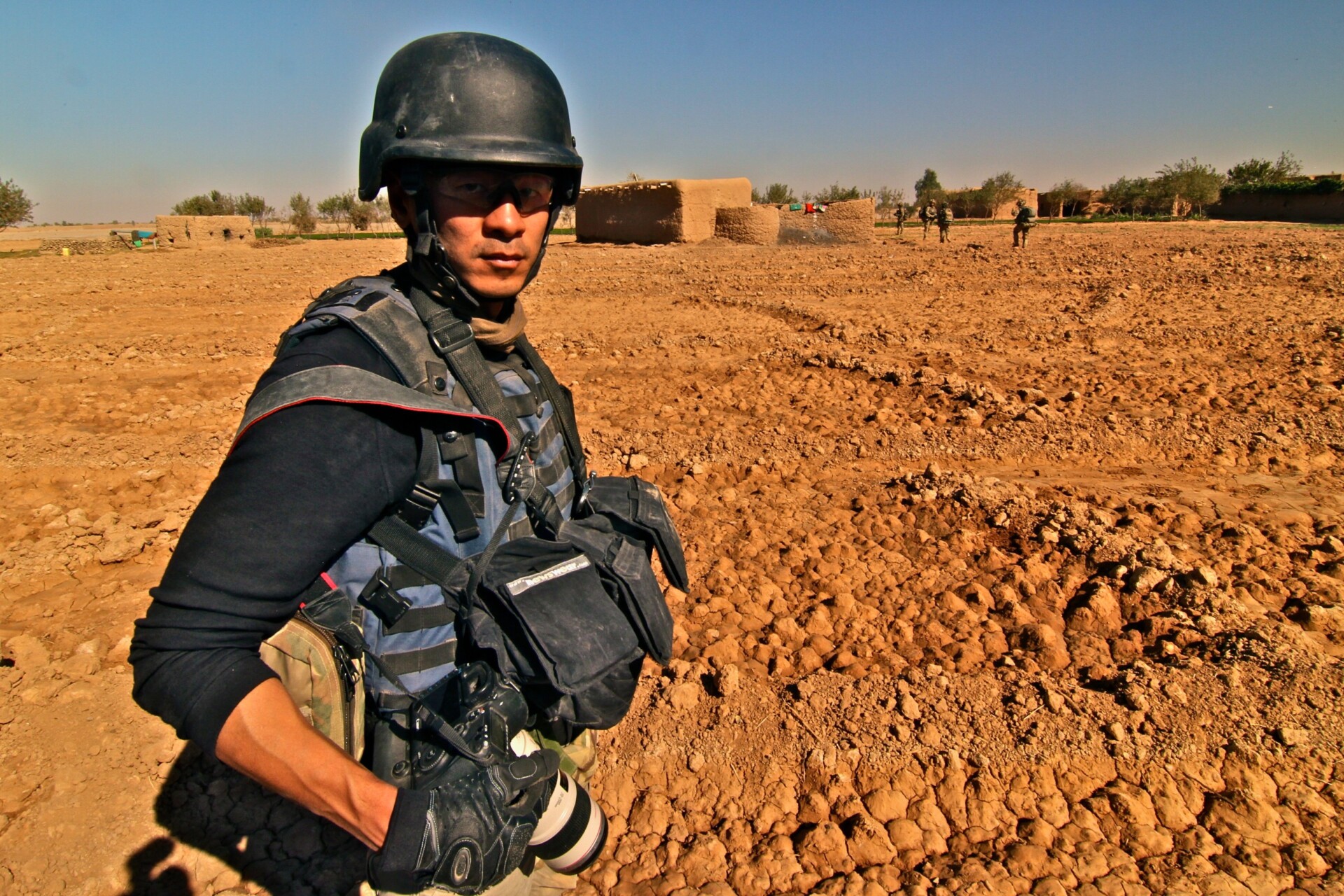
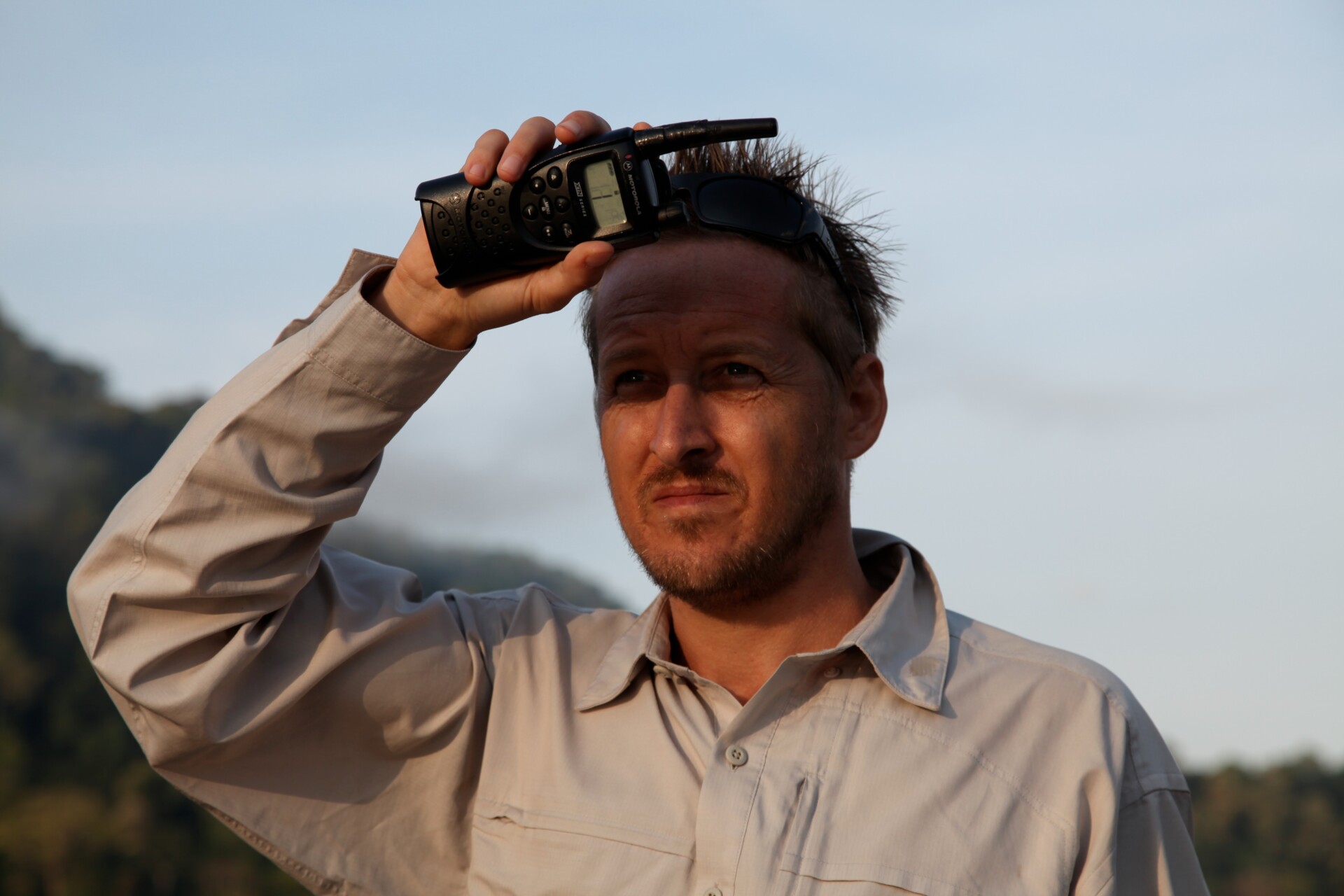
9. Did the pandemic hinder your work in the documentary? And given what you’ve seen, do you think we have a shot at seeing this drug operation dismantled?
Dean: I think when Covid hit, we were in post-production I believe. So, we had finished shooting most of the interviews, and the drama. So, we were quite safe and lucky. We did get affected by the archive search. So a lot of libraries were closed, we were working from home, we had a lot of problems getting the footage into Singapore because a lot of people were working from home. So that first lockdown last April, May was right when we were in edit. So there were lots of delays getting the final footage and that affected us a little bit.
In terms of dismantling drug production, I think social drugs and addiction is a social problem as much as it is a law enforcement problem. It doesn’t matter where in the world, it’s one of those social issues that you can’t separate the two and it doesn’t matter what law enforcement does. As long as there are people addicted to drugs, these addicts will have issues and problems wider than addiction. So, it’s a social problem that we need to tackle and talk about in the region and deal with just as well as the law enforcement. We gotta deal with both at the same time. That’s just a personal opinion, not what the film talks about. But personally, I think we need to help people with their problems and support the regional law enforcement.
Steve: I agree. If anything, in terms of illicit drug production, it speaks to the fact that until we as a global community deal with the hurt that people are going through, or this absence inside ourselves where we need to turn to drugs to overcome whatever mental stresses we’re facing. Until that social issue is addressed, there will always be drugs. Law enforcement can only do so much to squeeze, you know what these illicit criminal underworld people are doing in terms of production.
Dean: Yeah and to add to that, we have found out from our law enforcement friends in the UNODC, since Covid, the export from the Golden Triangle to Southeast Asia has increased dramatically and the Covid lockdown situation has caused a boom in drug addiction problems around the world. So, Covid itself, with the distresses, the mental stress, has really exasperated. The Golden Triangle, their export these last year and few months has gone through the roof. That says everything, I think that people are suffering because of Covid, and some people turn to drugs to deal with their problems and then there are people like these traffickers who are capitalizing on that, the human sacrifice and human suffering. They are profiting from that and that message comes down through the film. This is not our message, everything in this film is coming from law enforcement, or family, or friends or drug traffickers. So, whatever you take away from this film, is coming from them. It’s their story.
10. What impact do you hope to achieve from the documentary?
Dean: I personally love to tell untold stories. I really feel that the Golden Triangle is just something that has such a big impact globally and regionally and it’s never been told. So, the impact, I just want awareness of an untold story. There’s a lot of packages in this series, there’s history, there’s the contextual elements, the Golden Triangle, the place, but we chose a method to pick on singular drug traffickers and make bios and take us through that journey. So, I think I would love to see the impact in the awareness of the dark secret that in the middle of our region, is a lawless area that is supplying a lot of the world’s amphetamines. And it’s happening still and there are these ruthless characters that are behind it. It’s a hidden story that needs to be told.
Steve: Just to expound what Dean was saying, we both love to tell untold stories and that’s what really motivates us as filmmakers. It’s a hope that there is public discussion that comes from this biopics on the drug lords. The hope is that the discussion will eventually get into the question of governance and lawless areas. What we have seen globally and throughout times is that when there is a lawless area, the criminal elements of the world will take advantage. Whether that is in Afghanistan, Somalia, or in the Golden Triangle. I think there is a healthy question to be asked about the role that all of us play in ensuring that we have good governance, that we tackle any perceived corruption, that we really ensure that we take care of poverty and people that are suffering. Part of what motivates a lot of people in the Golden Triangle to work for this super lapse is because they need to feed their family. There’s so many layers of understanding and discussion that need to be had and a hope is that globally, we as a community can have these discussions and realize that our decision can be had. That is something we’re aiming for and hope that people will talk about these things.
Watch the trailer here:
“Traffickers: Inside The Golden Triangle” premieres exclusively on HBO GO on Friday, 23rd July.
The post Interview: Steve Chao & Dean Johnson On Their Challenges In Filming “Traffickers: Inside The Golden Triangle” & More appeared first on Hype Malaysia.
0 Comments